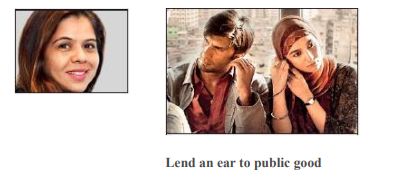As we endure the Covid-19 pandemic and wonder when this will end, the disputes between music labels and music platforms, like radio and internet, don't seem to have an end in sight. The radio industry has compulsory licence (CL) for music usage, and the Copyright Board order is a benchmark for royalties to be paid by the radio industry to music providers.
Which brings us to the debate on the applicability of statutory licence (SL) and CL to internet platforms that stream and broadcast music. Everyone agrees that the public suffers when music isn't made available to them. The basic intent of the copyright law is to protect owners of copyright. The statute is primarily drafted to achieve this goal. Another important goal is to ensure public access to copyrighted works, and that users of copyright are not harassed or stopped from disseminating copyrighted work in a legitimate manner for public enjoyment.
With this objective, the legislation was amended to add the SL regime for broadcast of sound recordings, lyrics and compositions. All broadcast today is available via the internet — be it on radio, television or mobile phone. Under the Copyright Act, 'broadcast' is everything that is wired or wireless diffusion. The applicability to the internet is further supported by the definition of 'communication to the public' — making any work available to be heard or otherwise enjoyed by the public by any means of display or diffusion other than by issuing physical copies of it, whether simultaneously, or at individually chosen places and time.
So, it's clear that internet music platforms are broadcasters and are covered under SL. The ambiguity that music labels seem to be thriving on arises from the possibility that the Copyright Act and Rules provide for differential royalty rates to be fixed by the Copyright Board — now Intellectual Property Appellate Board (IPAB) — for radio and TV.
Merely because the statute and rules did not call out all categories of broadcast to distinguish royalty rates doesn't take away the eligibility of other broadcasters from availing SL. What it means is that each broadcast medium shall have differential rates. The legislation lays principles. It need not envisage each and every situation in this world of ever-changing technology.
The intent of legislation was questioned and clarified by a 2016 Department of Promotion of Industrial Policy and Promotion (Dipp) memo: '...the words any broadcasting organisation desirous of communicating to the public may not be restrictively interpreted to cover only radio and television broadcasting, as the definition of broadcast read with communication to the public appears to include all kinds of broadcast including internet broadcasting. Thus, the provisions of Section 31-D of the Copyright Act, 1957 are not restricted to radio and television broadcasting only, but cover internet broadcasting also.' In the light of the 'Tips Vs Gaana' dispute, the need for an effective statutory licensing regime for internet music platforms has come into focus again. Due to the impact of Covid-19, revenues have suffered at Gaana. Some music labels continue to demand irrationally high royalties (with no linkage to revenues of internet music platforms). Tips demanded unviably high royalties. So, Gaana decided to pull down content, despite which Gaana has been dragged into court. Caught in the crossfire is the key stakeholder, the public, something that representatives of Tips have acknowledged.
It has taken a long time to bring a change in music consumption patterns in India. Increasingly, listeners are willing to listen to music from a legal environment. There is a dire need to ensure that the internet streaming and broadcasting industry survives. Unreasonable content costs demanded by music labels are akin to killing the goose that lays golden eggs. There is a compelling need for internet broadcasters to have recourse to the SL and CL regime that offers equitable and expeditious remedy
Section 31-D of the Copyright Act was introduced to ensure a level playing-field for all broadcasters. IPAB must be fully functional on a daily basis. Optimum royalty rates would need to be discussed after considering representations by all stakeholders. Intervention of the regulator, IPAB, is imperative. It is high time that critics of the SL regime appreciate commercial realities, needs of the public to have access to music, and the intent of law, and work with stakeholders in everyone's interest.
The writer is managing partner, Singh & Singh-Malhotra & Hegde

The content of this article is intended to provide a general guide to the subject matter. Specialist advice should be sought about your specific circumstances.

